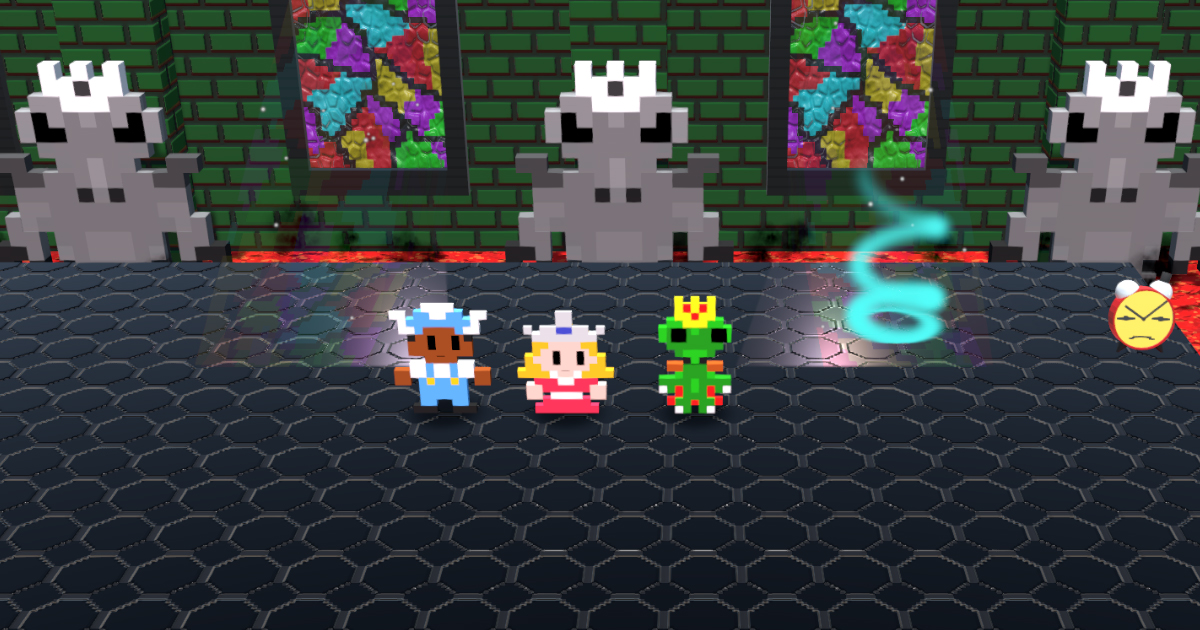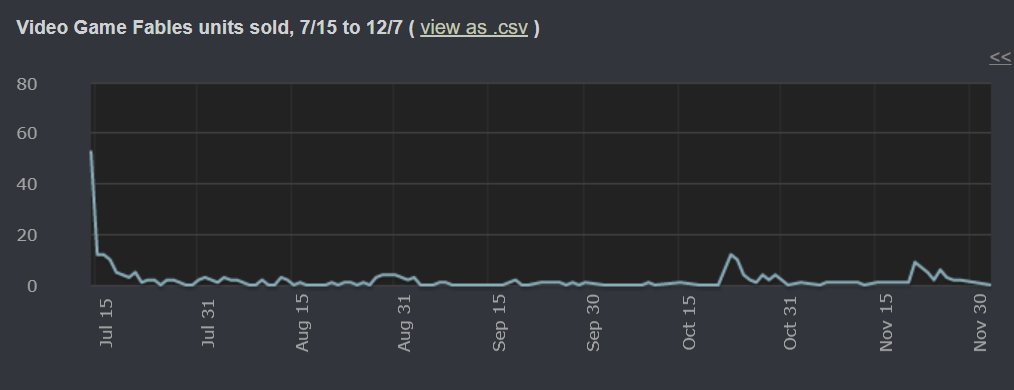People are used to stories of great success, but it is equally important to learn from others’ mistakes. Matt Sharp, solo developer at Momiji Studios, has reflected on the not-so-successful launch of his largely unique RPG Video Game Fables.

Last week, Sharp wrote a little post-mortem dedicated to Video Game Fables on Twitter. The thread starts with a promising introduction: “We only talk about successful indie games (the minority). Let’s talk about the actual reality of indie development.”
🧵(1/?) We only talk about successful indie games (the minority). Let’s talk about the actual reality of indie development.
I’ll be posting fully transparent sales numbers, revenue, etc. in this thread for my game that would be considered unsuccessful by most.#gamedev #indiedev pic.twitter.com/CUnJrofS8D— VIDEO GAME FABLES available now on Steam! (@MomijiStudios) December 7, 2022
Fast facts about Video Game Fables
- Sharp, who also used to teach game development at Wilmington University, describes Video Game Fables as a “lighthearted RPG” with a challenging turn-based combat system.
- It is set in a world abandoned by players, where three main characters are the Princess (who rescued herself and ruined the game’s script), an NPC aspiring to be a hero, and the main villain’s son.
- Video Game Fables also offers a unique XP system, which allows players to reallocate resources and stats almost at any given time.
How did Video Game Fables perform?
Prior to launch, Sharp sent out 2,000 Steam keys to different media outlets, streamers, and other influencers. 150 of them eventually produced some content about Video Game Fables (stream, review, etc.). But 76.8% didn’t reply at all.
The response was overwhelmingly positive, with many niche outlets praising the game and Momiji Studios. Video Game Fables also has a 100% rating on Steam. Sounds great, but there are only 18 user reviews — barely enough to get you at least some visibility on the store.
The game currently has 2,580 wishlists, and the median playtime is under 2 hours.
Video Game Fables sold 260 units in five months, with 53 copies sold on launch day. There were also 11 refunds.
This helped the title gross $4,097 in five months. Given Valve’s 30% cut, the final revenue would be $2,867.9, not to mention taxes (more information about Steam’s revenue share can be found here).

Sharp cited VG Insight’s data that more than half of indie games on Steam have a lifetime revenue of $4,000 or less. The more recent data might seem even more depressing. As pointed out by Crhis Zukowski, the median indie game on Steam barely makes over $1,000 lifetime.
(8/?) From these articles you can see some data on indie game revenue.https://t.co/3miw4JA7FFhttps://t.co/yiE1pggUdE pic.twitter.com/6zDj47Yf8z
— VIDEO GAME FABLES available now on Steam! (@MomijiStudios) December 7, 2022
So on the one hand, Video Game Fables can’t be considered a successful game. On the other hand, it has already generated more money than a myriad of other indie titles. But $4,000 is still low considering the amount of effort the developer has put into this project and the time he has spent working on it.
(18/?) I have always had struggles with depression and anxiety, so I can tell you this was not healthy for me to say the least.
Am I proud of myself for doing it? Absolutely. Would I do it again? I’m really not sure.
— VIDEO GAME FABLES available now on Steam! (@MomijiStudios) December 7, 2022
What are the reasons for the game’s underwhelming performance?
“I think it comes down to oversaturation in the market,” Sharp noted. This assertion is not without merit, given that thousands of new indie games come out on Steam every year.
“The sad reality is that successful indie games are objectively just the exception,” he said. “They’re the incredibly small minority. I just think that we as gamers, devs, game journalists, etc. need to stop glamorizing indie development and snap into reality.”
(21/?) You can count the “success stories” on one hand each year. What did we have this year? Vampire Survivors, Stray, etc.
Let’s say there were 10 on people’s minds each year. That’s 10 / 6,000.That’s 0.16% of the industry that we mentally use to represent the whole.
— VIDEO GAME FABLES available now on Steam! (@MomijiStudios) December 7, 2022
Sharp thinks that another huge factor is luck, saying that years of hard work don’t guarantee that you will win the lottery and find success in the market.
Although this is also true, games don’t always underperform just for these reasons alone. Here are some quick assumptions:
- Momiji’s title is sold at $19,99 (in the US region), which is a fair price for a good indie game, but maybe be too high for a project like Video Game Fables;
- We don’t know much about all the marketing efforts Sharp has made prior to launch to increase his game’s visibility and reach a wider audience;
- The game’s trailers don’t tell much about its main hook and unique features like the reallocatable XP system, so many potential players could see it as just another retro RPG.
However, it is always great to see indie developers being 100% transparent about their results. Make sure you check out the full thread with comments from other devs who also decided to share data on their games.
